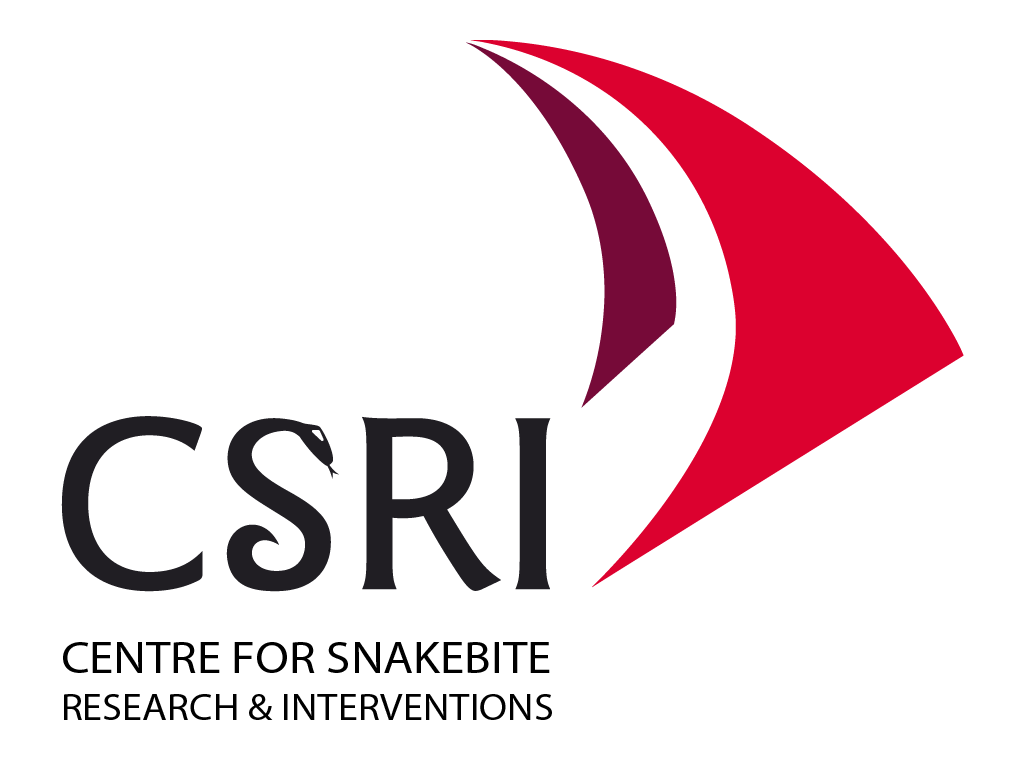
Reducing the disease burden of tropical snakebite
Snakebite has historically been perhaps the most under-researched, under-resourced high mortality (138,000 deaths pa) and high morbidity (400,000 disabilities pa) neglected tropical disease.
The research and advocacy activity of Liverpool School of Tropical Medicine (LSTM) has been instrumental in reversing this neglect by, for example, devising a model intervention program ensuring the delivery of significantly improved snakebite therapies (antivenoms) to counties in greatest need: The EchiTAb Study Group, and leading international academic and advocacy activities that culminated in the World Health Organization formally classifying snakebite as a priority Neglected Tropical Disease in 2017 .
Research Outputs
Theakston RD, Warrell DA. (2000) Crisis in snake antivenom supply for Africa. The Lancet. 356(9247), 2104.
Abubakar IS, Abubakar SB, Habib AG, Nasidi A, Durfa N, Yusuf PO, Larnyang S, Garnvwa J, Sokomba E, Salako L, Theakston RD. (2010) Randomised controlled double-blind non-inferiority trial of two antivenoms for saw-scaled or carpet viper (Echis ocellatus) envenoming in Nigeria. PLOS Neglected Tropical Diseases 4(7), e767.
Casewell NR, Cook DA, Wagstaff SC, Nasidi A, Durfa N, Wüster W, Harrison RA. (2010) Pre-clinical assays predict pan-African viper efficacy for a species-specific antivenom. PLOS Neglected Tropical Diseases 4(10), e851.
Kasturiratne A, Wickremasinghe AR, de Silva N, Gunawardena NK, Pathmeswaran A, Premaratna R, Savioli L, Lalloo DG, de Silva HJ. (2008) The global burden of snakebite: a literature analysis and modelling based on regional estimates of envenoming and deaths. PLOS Medicine 5(11), e218.
Harrison RA, Hargreaves A, Wagstaff SC, Faragher B, Lalloo DG. (2009) Snake envenoming: a disease of poverty. PLOS Neglected Tropical Diseases 3(12), e569.
Williams SS, Wijesinghe CA, Jayamanne SF, Buckley NA, Dawson AH, Lalloo DG, de Silva HJ. (2011) Delayed psychological morbidity associated with snakebite envenoming. PLOS Neglected Tropical Diseases 5(8), e1255.
Williams DJ, Faiz MA, Abela-Ridder B, Ainsworth S, Bulfone TC, Nickerson AD, Habib AG, Junghanss T, Wen Fan H, Harrison RA, Warrell DA. (2019) Strategy for a globally coordinated response to a priority neglected tropical disease: Snakebite envenoming. PLoS Negl Trop Dis 13(2): e0007059. https://doi.org/10.1371/journal.pntd.0007059
Harrison RA, and Williams DJ. Royal Society Tropical Medicine & Hygiene Special Report on Snakebite. Case reports of tropical snakebite victims illustrate the vital humanitarian role and challenges of community action groups.
Harrison RA, Casewell NR, Ainsworth SA, Lalloo DG. The time is now: a call for action to translate recent momentum on tackling tropical snakebite into sustained benefit for victims. Transactions of The Royal Society of Tropical Medicine & Hygiene 2019 Dec 1;113(12):835-838.doi: 10.1093/trstmh/try134
LSTM’s research activity and impacts on tropical snakebite
The former head of LSTM's Head of Centre for Snakebite Research & Interventions (CSRI), Professor Rob Harrison, on behalf of Professors David Theakston, David Lalloo and Nick Casewell talks about LSTM’s research activity and impacts on tropical snakebite.
As part of LSTM’s REF2021 Research Impact Statement, and as a tribute to Professor David Theakston’s leadership, this talk describes LSTM’s decades-long research upon tropical snakebite victims, the activities we have undertaken to understand the scale of the problem and therapeutic solutions and why this has been focussed upon sub-Saharan Africa.
The talk also describes the impact our research and advocacy activity has had upon victims, international health policy and the tropical snakebite research domain.
Professor Rob Harrison's presentation on Tropical snakebite.
In The Biomedical & Life Sciences Collection, Henry Stewart Talks.
Retrieved May 15, 2020, from https://hstalks.com/bs/3973/.
The Centre for Snakebite Research & Interventions at LSTM
Throughout the 50-year history of the Centre, its objective has been to conduct a diverse portfolio of research activity to better understand the biology of snake venoms and use this information to improve the efficacy, safety, and affordability of antivenom treatment of tropical snakebite victims. The Centre and its staff, led by Professor Nick Casewell, is part of the LSTM Department of Tropical Disease Biology.
"Snakebitten": Tale of the serpent | Prof Nick Casewell | TEDxLSTM | November 2019
Snakes strike both fear and fascination in people. These emotive responses are likely the result of the long co-evolutionary interactions that have taken place between snakes and our primate ancestors over millions of years. In his TEDxLSTM talk, Nick provides an overview of the biology that makes snakes fascinating animals, and detail the consequences of our interactions with them both historically and contemporarily, including the great impact that bites by venomous snakes have on the world's tropical populations today.

